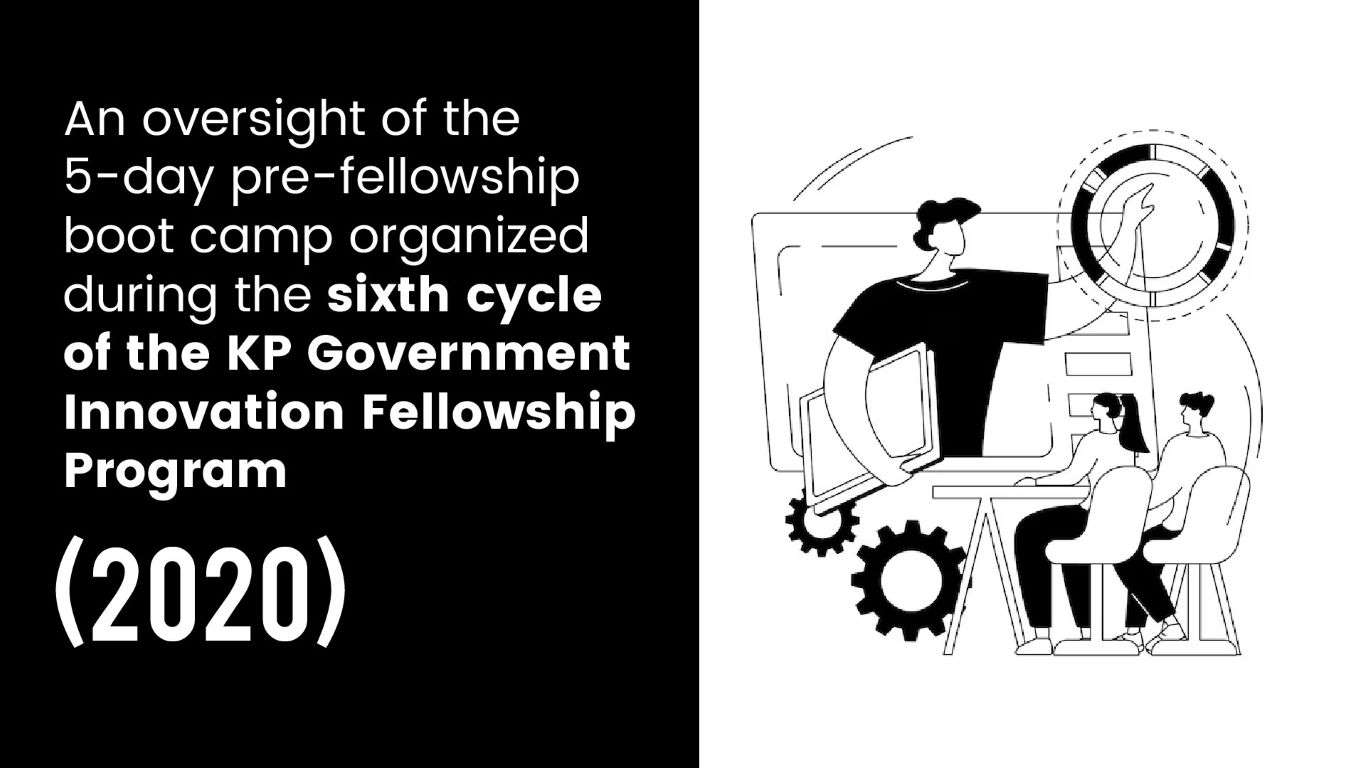
This year, we are running the sixth cycle of the KP Government Innovation Fellowship Program in a very different landscape than previous years, amidst a global pandemic and strict social distancing guidelines. Before our Fellows formally got to work, we ran a three-day online bootcamp to prepare the new cohort of Fellows for six months of telecommuting and collaborating remotely to design and develop innovative, user-centred public services.
The 6th cycle of the KP Government Innovation Fellowship Program kicked off on June 1st, 2020. However, this year’s Fellowship is a little different from the Fellowships in the past.
Traditionally the Fellowship Program brings together a cohort of 20 Fellows working together at Durshal Lab Peshawar but with the unprecedented situation created due to the COVID-19 pandemic, it seemed the best course of action was to redesign the Fellowship Program to ensure the safety of the Fellows, while also facilitating front line government departments during this crucial time on a priority basis.
Interactions with Government Departments will also largely be done online, while in-person meetings will be limited to only those of high priority. We have also updated the curriculum to facilitate remote work and telecommuting and have encouraged online collaboration, design thinking and prototyping by means of online collaborative softwares.
Since transitioning to this way of working, i.e. remotely and online, is new for most people, the KP Fellowship team decided to arrange a Three-Day Online Pre-Fellowship Bootcamp, designed to ease our 2020 Fellows into the Program, and teach them about the essentials of telecommuting, online collaboration and how to easily navigate their way around this new way of working.
Day 1: Introduction to the Fellowship Program
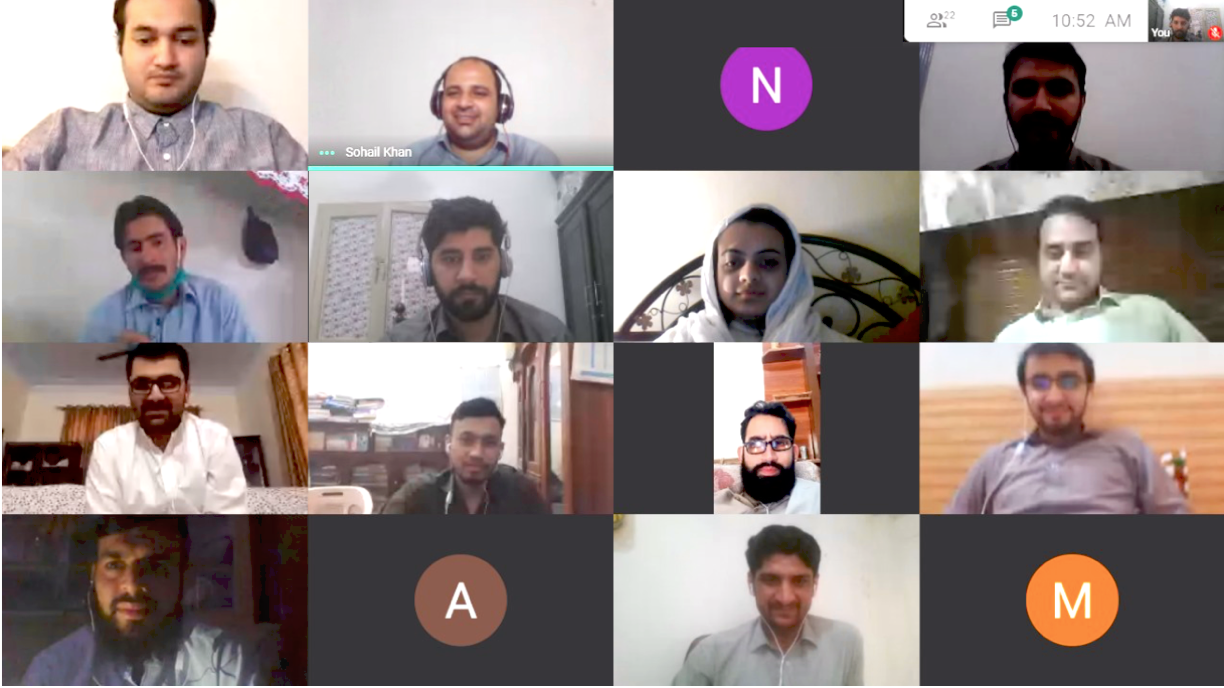
The first day of the bootcamp covered introductory sessions, the KP Fellowship team welcomed the Fellows and introduced them to the ins and outs of the Program, with a session, “Intro to the Fellowship Program,” delivered by Ibraheem Saleem, Program Manager at the KP Fellowship Program. Ibraheem also held a session on, “Civic Tech and Digital transformation in Government,” which covered what Civic Tech is and how the Fellows can use this opportunity to bring about a culture of innovation within the government.
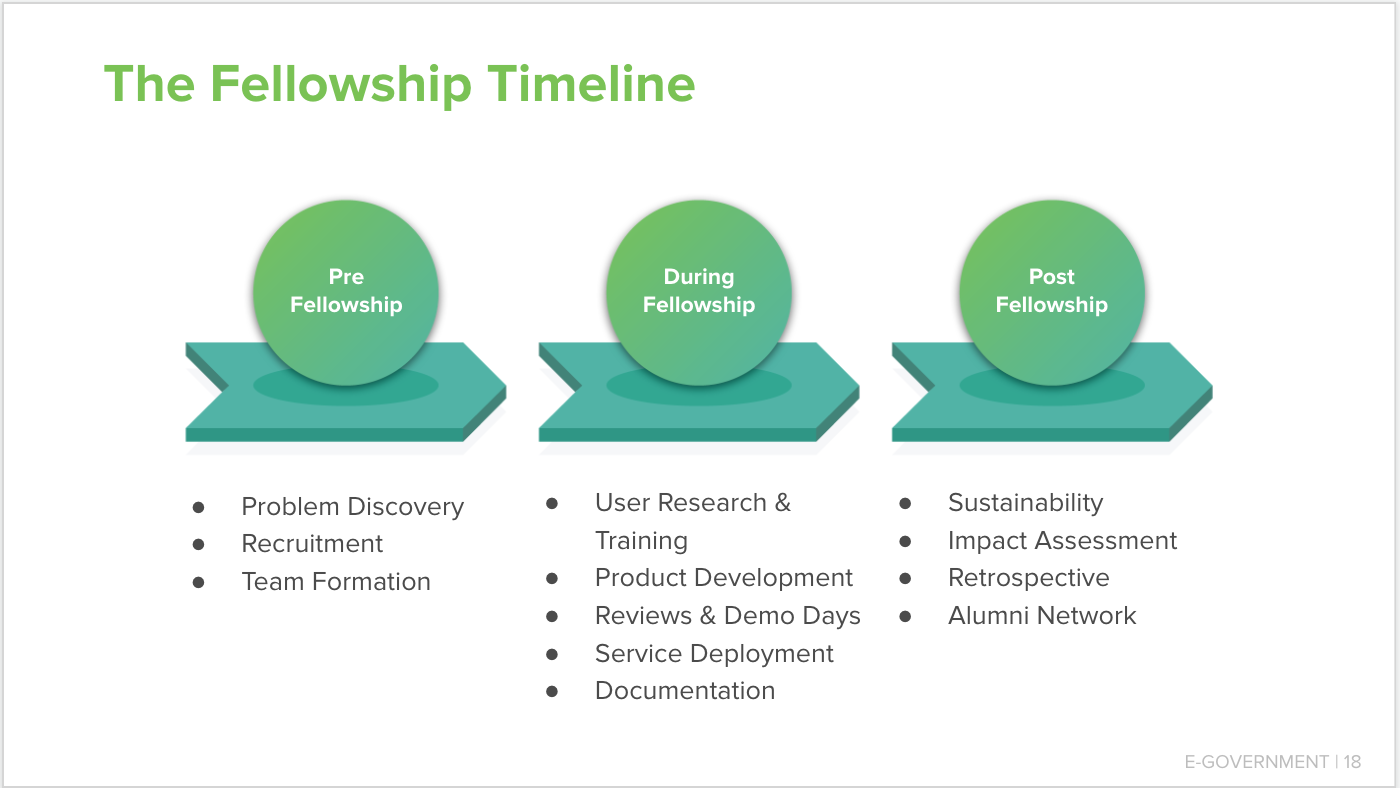
Another session on Day 1 was arranged around, “Remote Work Essentials Training,” where Fellows were trained on how to effectively manage working remotely and how online tools and collaboration software can enable them to make the most out of telecommuting.

We also invited a mentor, Ehtisham Siddiqui, to give a talk on, “Remote Work and Telecommuting,” Ehtisham was a Fellow in the first batch of the Fellowship Program in 2014, and has been working remotely for the past five years with Automatic, which is the parent company of Wordpress.com. Ehtisham gave a very insightful talk and covered essential points on how to work in remote teams. Ehtisham also answered questions from the Fellows and gave them tips on better time management and ensuring timely deliveries to reach product development milestones. The interesting thing about this session was that Ehtisham managed to give the session while traveling, which nicely illustrated the flexibility that remote work provides.
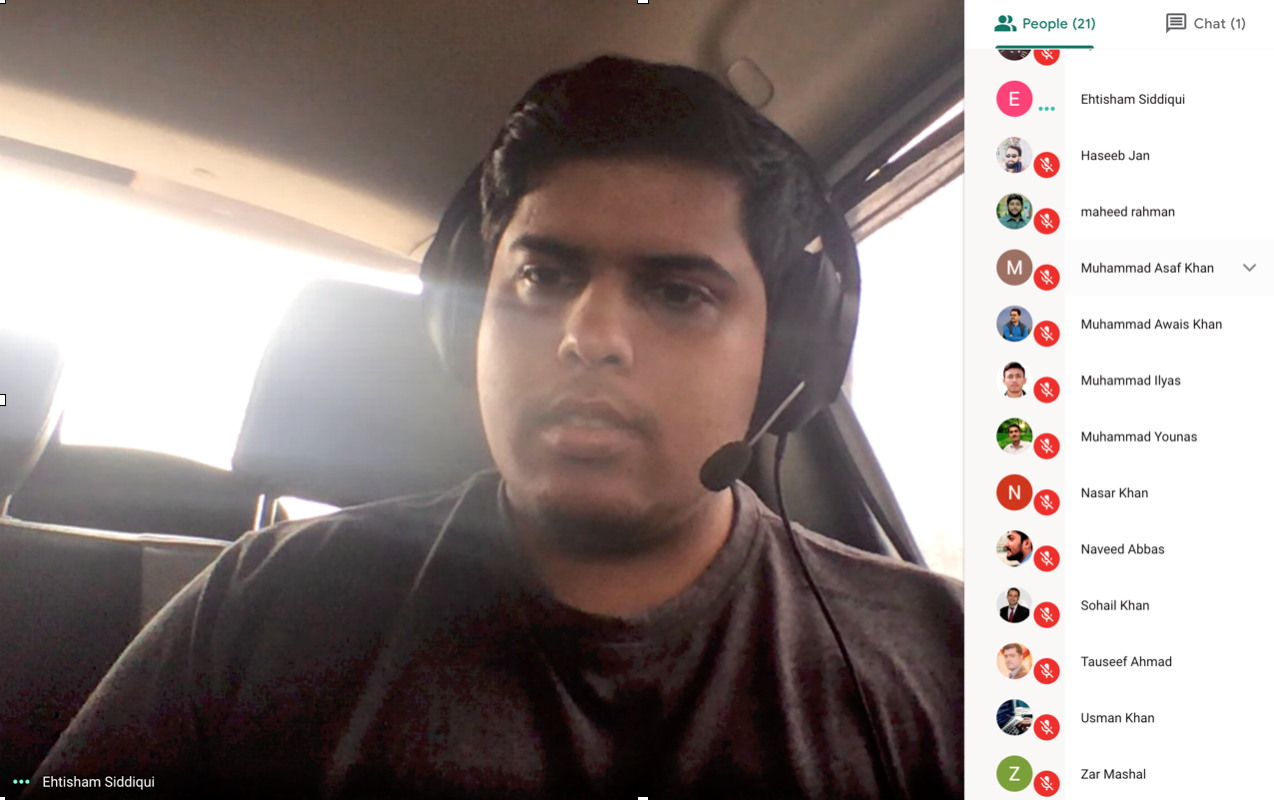
Day 2: Managing Comms during Remote Fellowship and Agile Project Management
The second day of the Bootcamp was dedicated towards training the Fellows on how to manage their communications. A session titled, “Managing Comms during Fellowship,” was conducted by Sohail, Associate Program Manager, KP Fellowship. Sohail introduced the Fellows to online tools and software, such as G Suite, Slack, Trello, and others, which can be effectively used for online communication and collaboration. In another session, Sohail also covered the basics of, “Agile Project Management,” and introduced concepts like Scrum Methodology, Sprint Planning, Retrospectives and Daily Meetings.
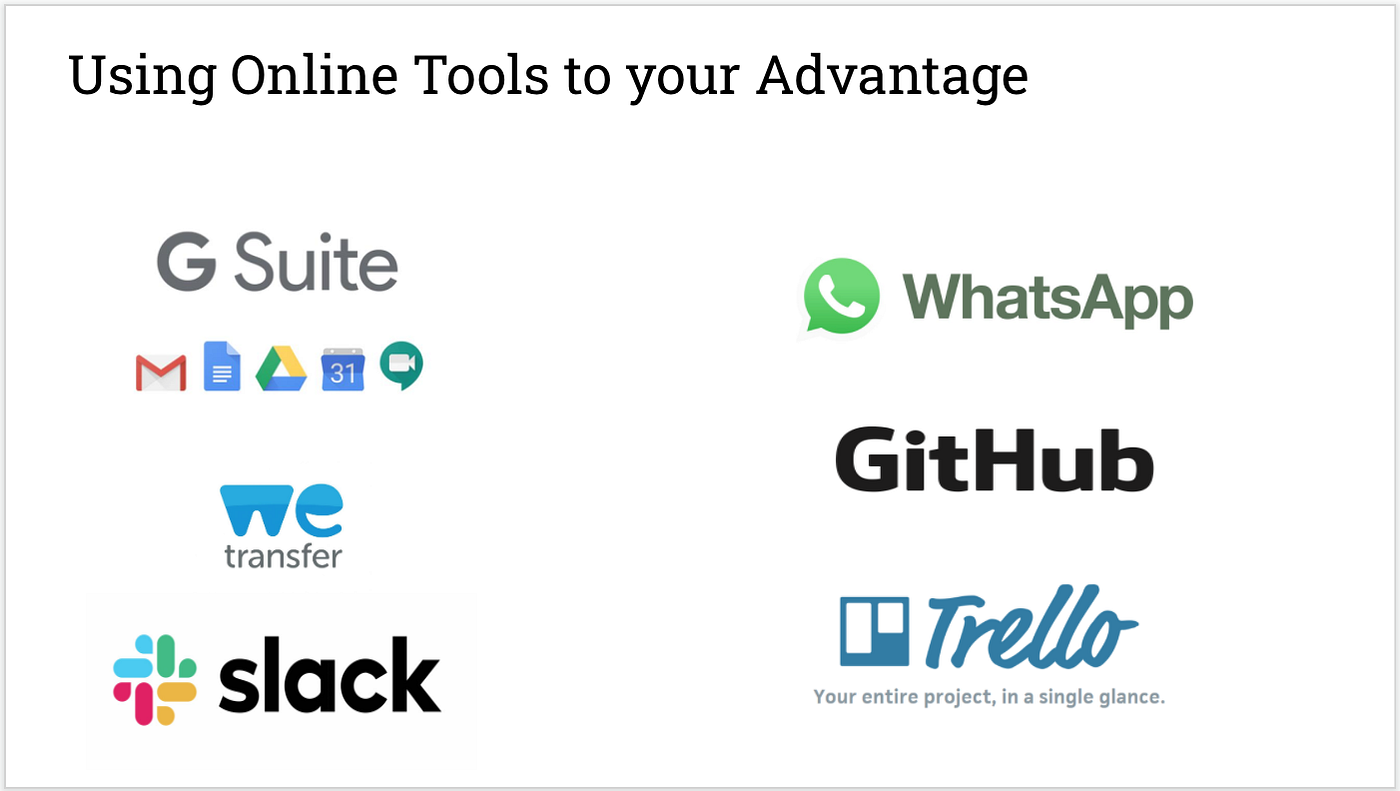
Most Fellows do not have experience interacting with government officials and effective communication with government is a crucial part of their job, so Nazim ud Din, the Government Liaison and M&E lead at the KP Fellowship Program, facilitated a session on “How to work with the Government,” covering the basics of government structure and how different departments operate. He provided insight on how innovation can be brought about in different public-facing operations within the government.
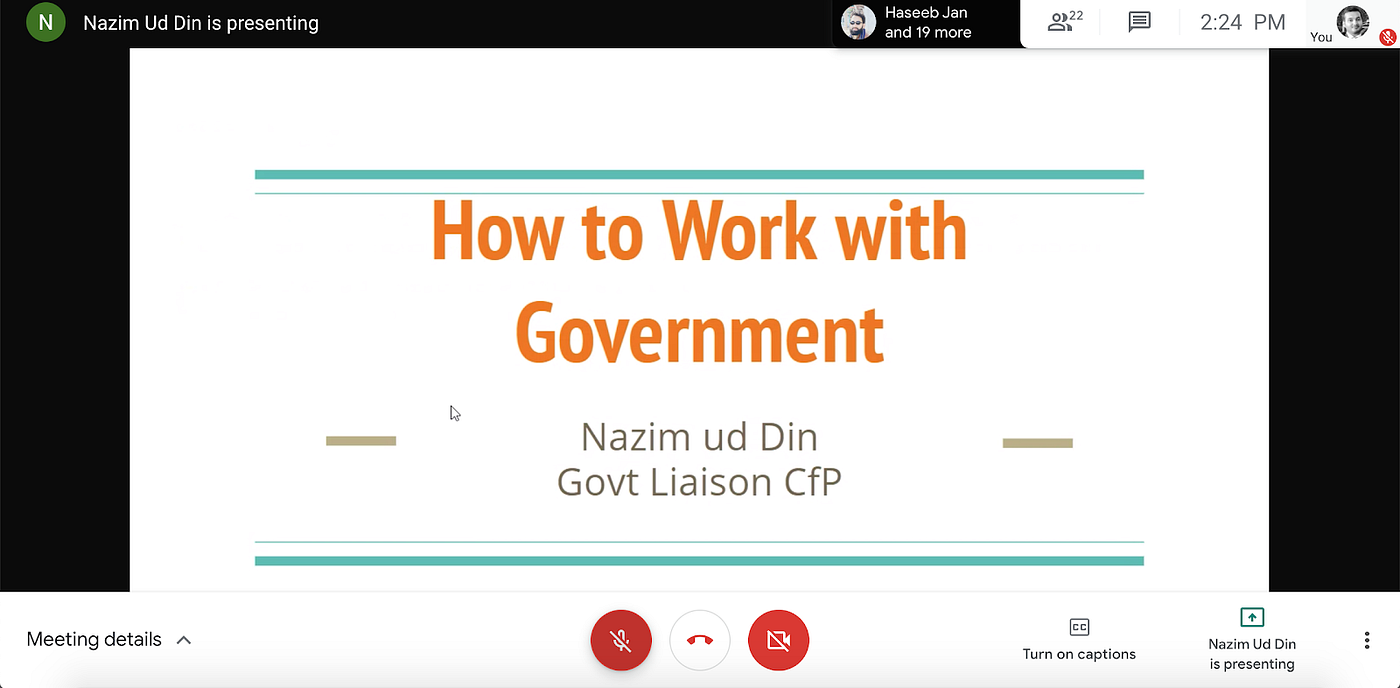
Another important aspect of the Fellowship Program is interpersonal and soft skills training for our Fellows. For this purpose a session on, “How to Improve Communication Skills,” was organized which was conducted by Sahar Habib who is the Director, Communications at Code for Pakistan. Sahar gave a very insightful session on communications skills development and gave insights on how to professionally communicate in different interaction scenarios. She had an interactive Q&A session with the Fellows and answered their queries around confidence, emailing etiquettes and remote communications.
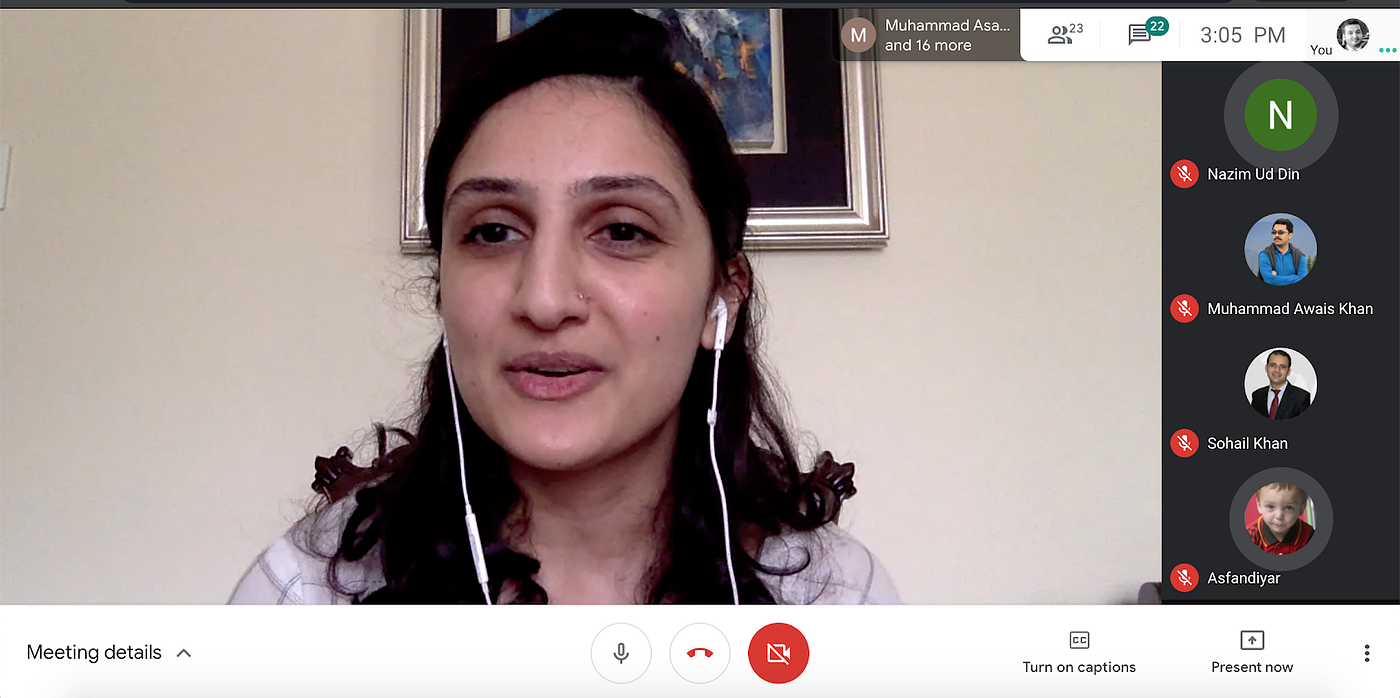
Day 3: How to do Code Collaboration and Design Collaboration Remotely
One of the hallmarks of the Fellowship Program is our focus of using open source software, tools and libraries for developing products and solutions for different government departments. There are multiple reasons for choosing open source software development: it’s mostly free of cost, maintenance is easy and it encourages code collaboration between different government departments provincially.
At Code for Pakistan, we use Github, a primary choice for software engineers for code collaboration and managing teams for technical projects. Github is the go-to platform for many programmers, developers and software architects to find open source projects, tools and libraries for code collaboration and open source software development.
We arranged a session for the Fellows on Github and how to effectively use open source software in their projects. The session was conducted by Mubassir Hayat who is a Fellow from the first batch of the Fellowship Program. Mubassir is a senior software engineer who has international experience working with different software firms and startups, and he gave a very detailed and helpful session around Github and how to use its different features, including how to navigate the Github platform and how teams can collaborate with each other by sharing code repositories.
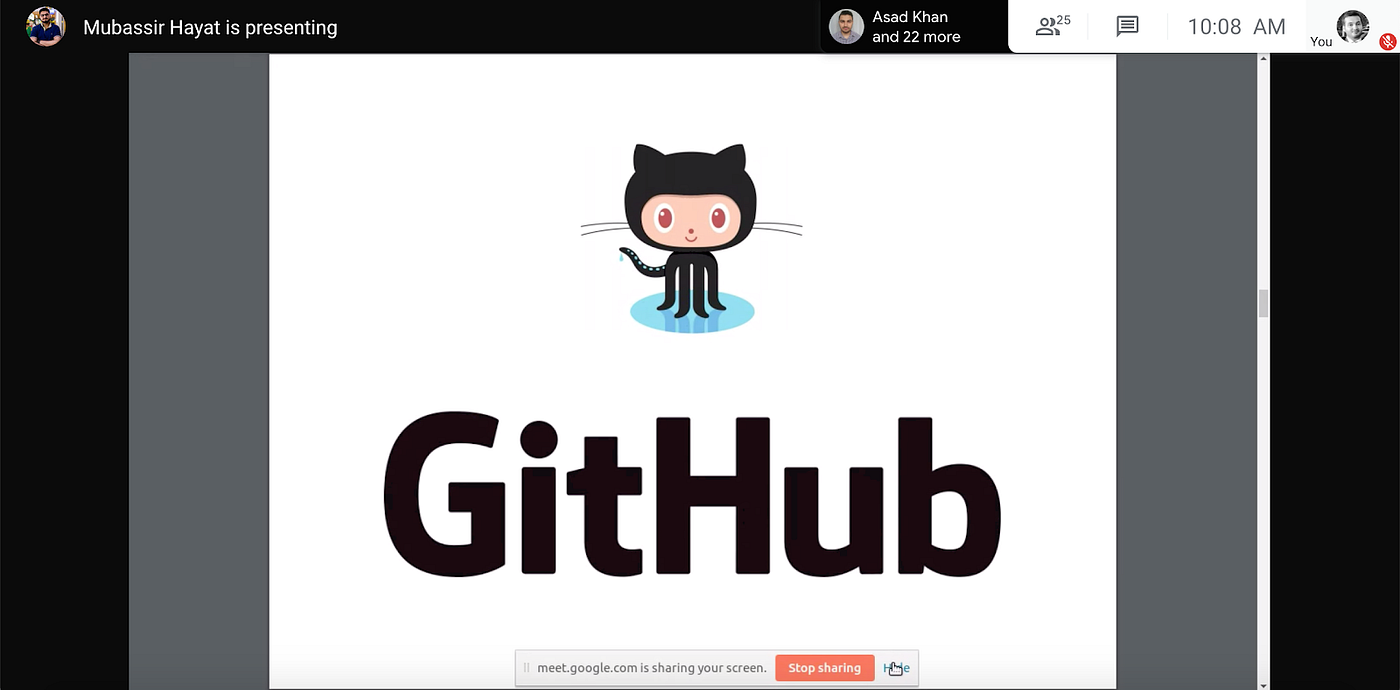
The session covered step by step guides on how to navigate the Github platform and how teams can collaborate with each other by sharing code repositories.
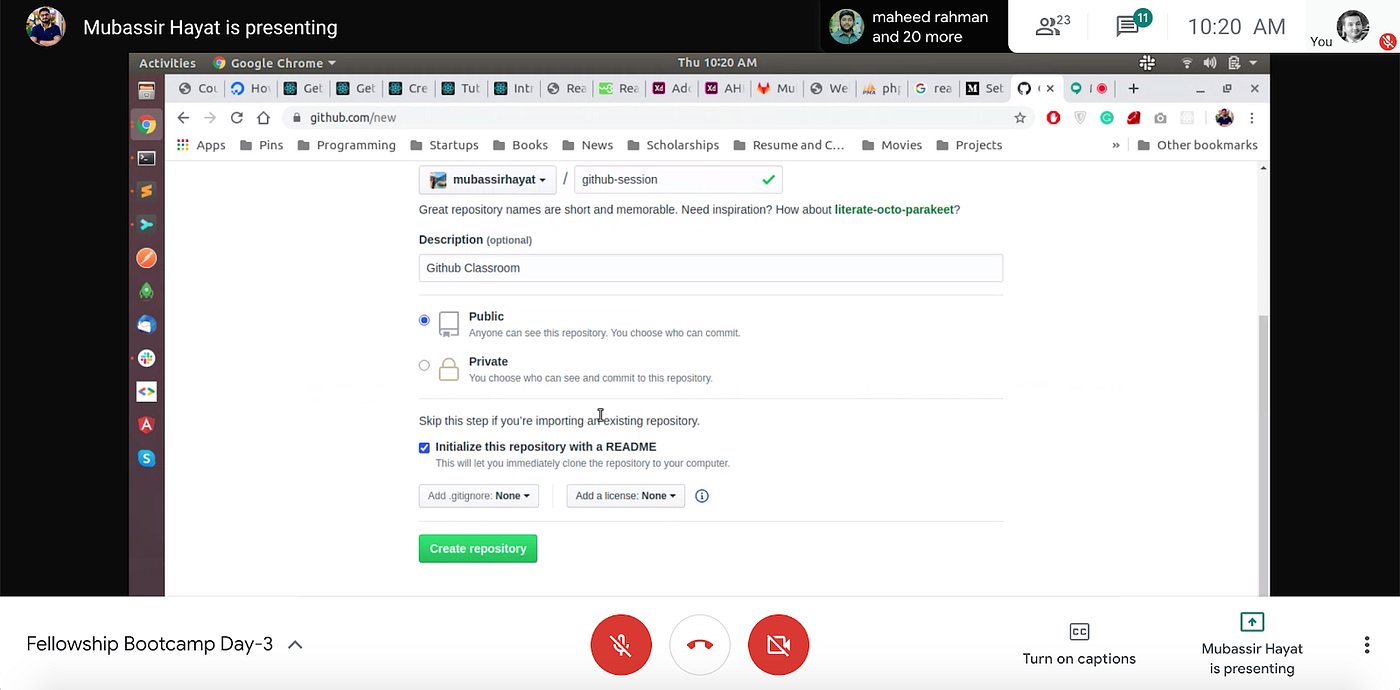
Design Thinking, Prototyping and UX/UI Graphic Designing are core elements of the project development methodology followed in the Fellowship Program, and this is why a number of Fellows with graphic design expertise are recruited each year. Ebtihaj Khan, who is a Senior Manager at Code For Pakistan, delivered a session on, “Online Design and Collaboration using Figma.” Figma is a powerful prototyping and design tool used by graphic designers to work collaboratively online. Ebtihaj’s session was very interactive, where he also demoed a Weather App design and prototype creation.
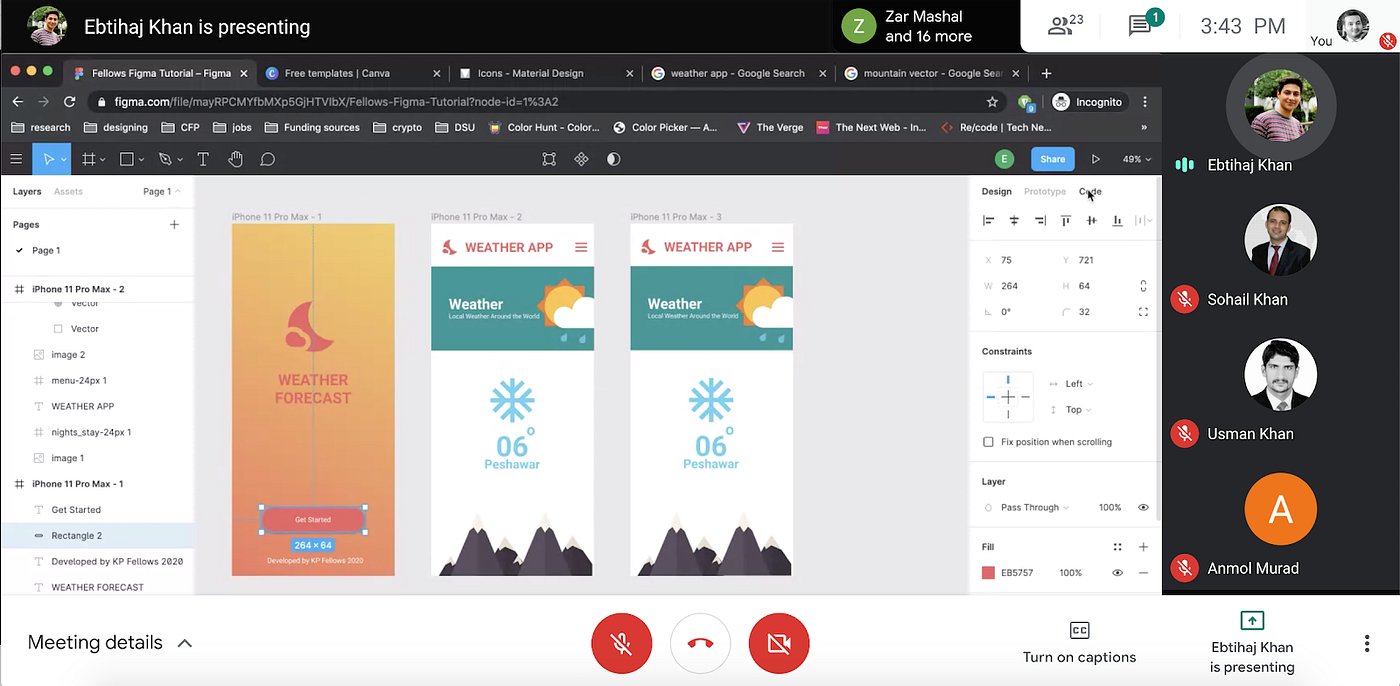
After covering the essentials and technical topics, we also arranged a fun, “Open Mic Session,” for the Fellows at the end of Day 3, where everyone got to interact informally and the Fellows had five minutes each to share their life story and why they wanted to join the Fellowship Program. The Open Mic Session was quite well received by the Fellows and we got to hear interesting stories from them.
It was an intense but incredibly productive week, where the CfP team and mentors were able to interact with the Fellows and ease them into the Fellowship Program. Running the Fellowship in this way is a new experience for all of us, but we’re excited about the challenge and the opportunity.
Written by: Ibraheem Saleem
Ibraheem is the Program Manager at the KP Government Innovation Fellowship Program. He comes with an entrepreneurial background, with a keen interest in Social Impact Ventures, Civic Innovation, and Community Mobilization through technology.